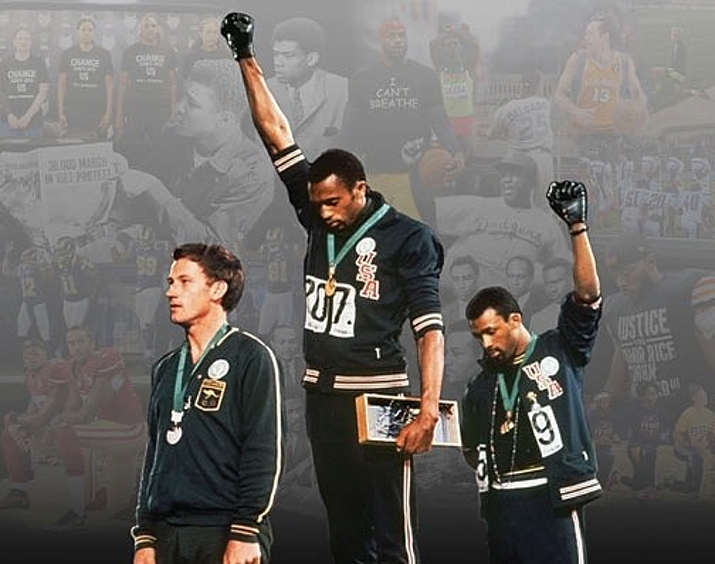HAPPENING AT THE UNITED NATIONS
HUMAN RIGHTS DAY AND THE WORLD CUP IN QATAR
It would have been nice if all the captains of all the football teams participating in the World Cup in Qatar had been warned about wearing the rainbow armband. It would have been very good indeed and instead prudence prevailed, which oftentimes borders on cowardice. Especially for those who can afford to break an unjust rule without risking their lives or those of their family members.
To be clear: Iran's players who do not sing the national anthem before the match are risking their own existence, the future of their relatives, and are thus performing an extremely brave act. If at the next meeting they don't feel like repeating the experience, if the threats coming from Tehran convince them to backtrack, they cannot be convicted. Being a hero is not necessary. They, in any case, have made an important gesture reminding everyone of what is happening in their country.
But if the captain of Germany talks about wearing the rainbow armband to protest against the lack of respect for human rights in the country hosting the tournament, then refrains from doing so, things are a little different. What was the champion risking? A warning. And maybe another in the next game that would have prevented him from participating in a match. On a sporting level it is important, even serious, especially for an athlete who prepares for that moment all his life. But how many cups did he deserve to raise for such a gesture? More than a sportsman can conquer in a successful life. Gestures are just as important as words. It is true that the entire German team covered their mouths with their hands in the traditional photo before the match that inaugurated their world career. That too is a historical photo, but something more could have been expected.
The World Cup is taking place without any particular protests in a country where human rights are not fully guaranteed
Not only from them but from other teams, and above all from those who organize Fifa, which not only allowed Qatar to host the event, but also threatened those who announced any kind of protest in favour of human rights with sanctions.
As we know, a lot of money is involved and nobody wants to risk repercussions, even if only economic, for a symbolic gesture. But it wasn't always so. In the past, others have put themselves on the line and paid the consequences. It was October 16, 1968, in the Mexico City stadium, the US sprinters Tommie Smith and John Carlos finished first and third in the 200m final at the Olympics. Smith had set a new world record, even though he had a loose tendon and ran the last 10 meters with his arms up. Carlos had finished behind his compatriot and Australian Peter Norman. The Americans took to the awards podium, received the medals they deserved, waited for the national anthem to play, then lowered their heads and raised their clenched fists while wearing black gloves. Norman sympathized with his American colleagues by wearing a pin on his chest from the Olympic Project for Human Rights, the association that inspired the gesture of Smith and Carlos. A few dozen meters away, photographer John Dominis took a photo that would become one of the most famous of the twentieth century, a symbol of a decade of protests for black civil rights.
At the 1968 Olympic Games, two American sprinters blatantly claimed the civil rights of blacks
These things have costs, both human and professional. The International Olympic Committee immediately demanded the exclusion of Smith and Carlos from the Olympic village and their suspension from the US team. Upon their return to their homeland, the two gained some recognition from the community they had represented but also suffered criticism and intimidation as well as receiving threats. Norman was also threatened and insulted once he returned to Australia, and according to some was barred from the 1972 Olympics as a result of that episode. At his funeral in 2006, Smith and Carlos carried his coffin on their shoulders.
54 years have passed since 1968, and everyone still knows who won the 200m final, as well as who finished second and who crossed the finish line third. In 54 years, in 2076, who will remember what happened between Spain and Germany or who lifted the cup at the end of this year's final? The team that wins the current World Cup will have accomplished a sporting feat, will be idolized for a time and will then enter the list of teams that have won the most important national team tournament in existence. One team every 4 years. It is very important, but not as much as the gesture of Smith and Carlos.
From another point of view, it is interesting to note that this year the World Human Rights Day organized by the UN on 10 December took place, for the first time in history, during the soccer World Cup. It would have been nice, between one feat and another, for people from all over the world, meeting in one point of the planet, to have enjoyed the guarantees provided by the Universal Declaration of Human Rights, signed in 1948, twenty years before the gesture of Carlos and Smith. It didn't go quite like this: there are those to whom respect for human rights does not apply. If we consider that the text of the United Nations declaration is available in over 500 languages, no one can pretend not to have understood the undisputable rights that everyone possesses as human beings, without distinction of race, colour, religion, sex, language, origin, birth or opinion of any kind.
it is composed of a preamble and 30 articles and was written with the collaboration of representatives of every religion and legal background, becoming globally accepted over time as a "contract" between governments and citizens of the world. Between the declarations and their application, however, there is a gap that oftentimes seems unbridgeable. However, it is certain that the principles are timeless, current today as always. But values are part and parcel of man. Many adhere to these principles, but often they don't even make the newspapers, let alone the rest of the world. It would have been nice if someone had considered them more important than a simple warning.







